by Nathaniel R
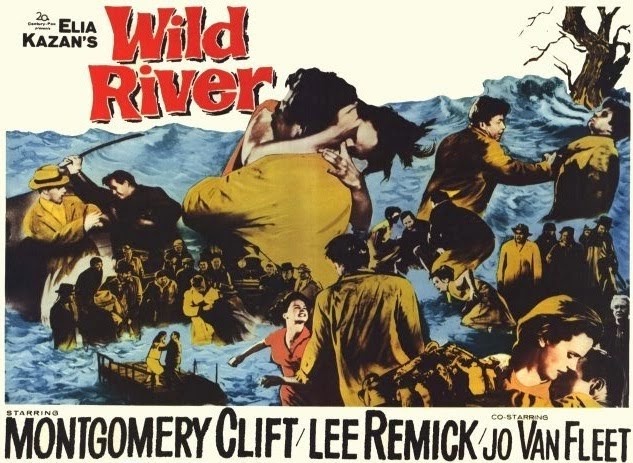
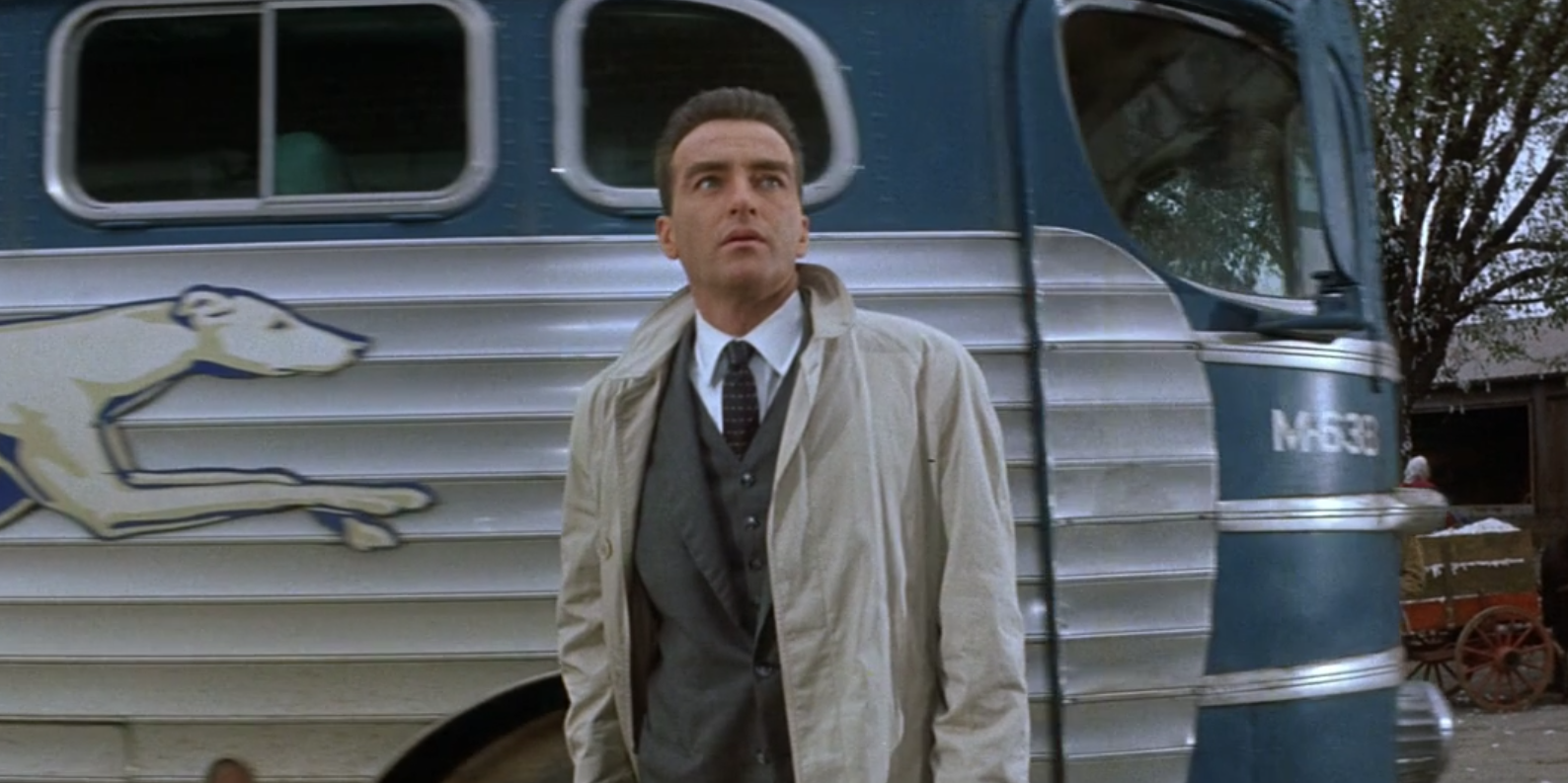 Clift arrives in Tennessee, a Federal employee who the locals will not take well to.
Clift arrives in Tennessee, a Federal employee who the locals will not take well to.
When speaking about new movies, we often discuss the vagaries of film distribution and studio support both in terms of audience outreach and awards campaign. These things often effect how movies are received, for better and worse. Less discussed, probably because interest is always more niche when it comes to older films, is how important both continued availability and awards play, are to an enduring reputation, once a movie is "old". Some films are forgotten for a reason, but there are plenty that would be better regarded if they had remained readily available to the public. Such I'd argue is the case with Elia Kazan's Wild River...
Though Clift's road back to the movies following the long break after From Here to Eternity was psychologically fraught and physically painful it's worth noting though it's rarely acknowledged, that the majority of the movies at the start of the second act of Clift's career were actually successful upon release! Raintree County sold lots of tickets (though its gargantuan budget prevented a profit), The Young Lions was financially, if not artistically, successful and Suddenly Last Summer was a truly major hit (Liz didn't need it but Hepburn and Clift sure did at the time). And then comes Wild River, which one assumes wasn't a hit as it's so rarely discussed and the Academy totally ignored it (though the bulk of Clift's movies did receive Oscar nominations of some kind).
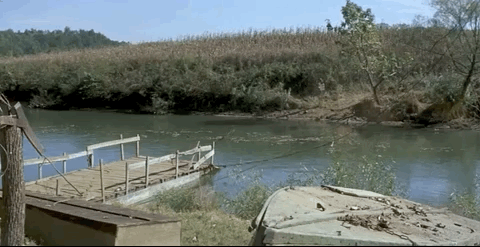
The story takes place in the early 1930s.
We learn in a short documentary-prologue that the Federal government in the form of a new outfit called the TVA, is trying to stem disastrous amounts of death and destruction in Tennessee due to the river. They aim to both tame the titular body of water with dams and harness it for electricity to bring progess to the State. Naturally progress is a dirty word to some.
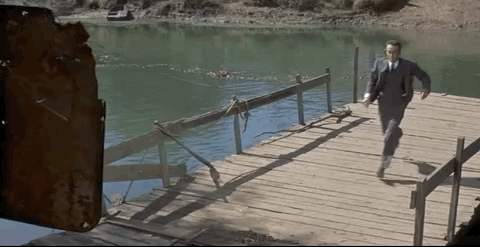
Ma Garth (Jo Van Fleet, sensational) is a landowner who has refused all relocation and buyout deals from the government. Her small island in the middle of the wild river, is home to her extended family including granddaughter Carol (Lee Remick) and all of their black farm hands and their extended families. That's a lot of people who will die as the river rises. TVA bigwig Chuck Glover (Monty Clift) is sent in to save the day and talk some sense into the old woman, preferrably without using orce to drag her out. At first Chuck is all philosophical and cheerful about it, but he doesn't yet realize how hard his job is going to be.
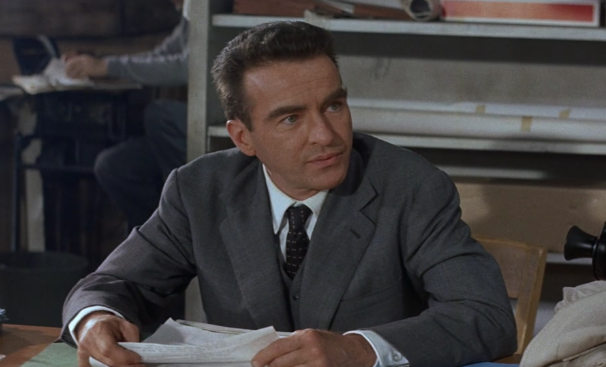
That is the American way of life. Rugged individualism is our heritage. 3,000 people sell, and Ella Garth won't sell. We applaud that spirit. We admire it. We believe in it. But we've got to get her the hell out of there.
Multiple visists to Ma Garth don't go well and things get increasingly complicated (and dangerous) for the government man.
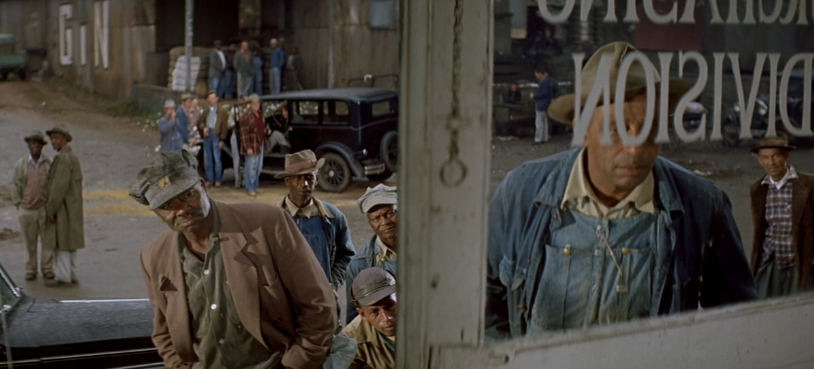 laborers about to get a huge raise
laborers about to get a huge raise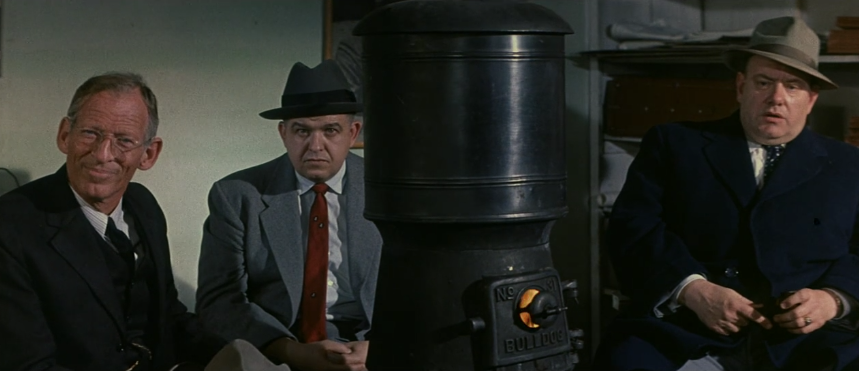 local racists who can't believe their cheap labor is quitting
local racists who can't believe their cheap labor is quitting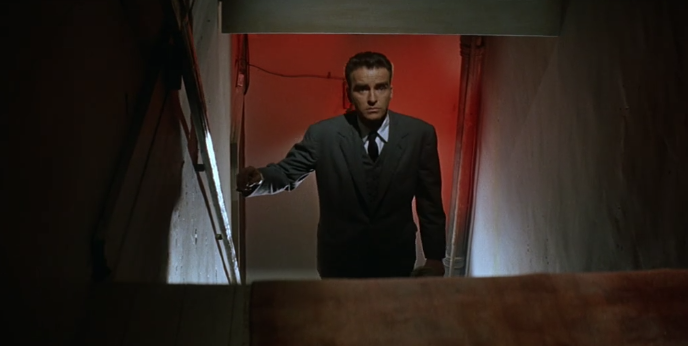 Chuck realizing he's about to get a beat down with racist thugs visiting him at home.
Chuck realizing he's about to get a beat down with racist thugs visiting him at home.
One of the modern appeals of Wild River is that it's racially progressive. Chuck comes in direct conflict with racist authorities in Tennessee who are mortified that someone is stealing their cheap labor and offering them the exact same pay as white workers. Even better, Chuck isn't portrayed as some kind of white savior by doing this... he's just a smart guy making a savvy (if risky) move that will both save lives and remove one obstacle to his end goal (getting Ma Garth off her land). Clift also doesn't clumsily underline his character's heroism -- so many modern films are so self-congratulatory about their activism -- but just evokes a basic sense of decency and fairness in his character instead.
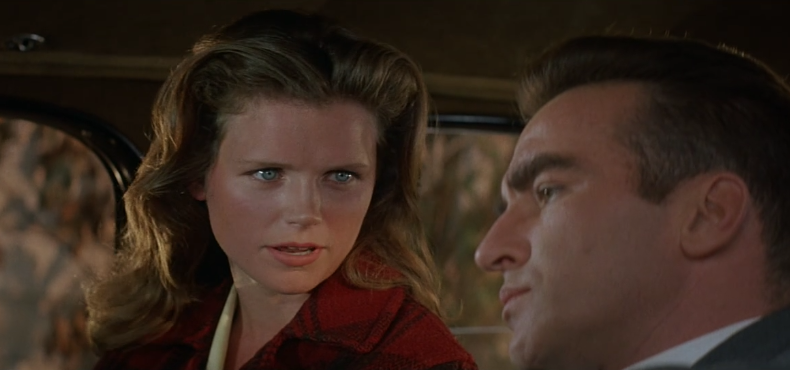
But mostly Wild River is a wonderful watch because the story is compelling and the performances are all totally on point (it's an Elia Kazan picture, natch). Some of the common Clift persona beats are trotted out again -- he's an outsider who makes people uncomfortable, he gets physically battered epeatedly but refuses to budge an inch, and he has a compellingly believable sexual relationship that's not quite a traditional romance -- but the happy news is that Clift is terrific in the picture, rising to the challenge.
Lee Remick is fascinating as Carol, a young widow, who is trying to work her way into the heart of a man she doesn't understand... and who she fears doesn't actually love her. One of the best scenes is pretty frank shaming from her grandmother about her sexual dalliance with Clift. Clift's reactions to Remick are often impenetrable but it fits the character who is perpetually indecisive about this widow even though he's quite believably drawn to her nonetheless. Clift had always been wonderful at evoking confused but passionate romantic feeling and is again here.
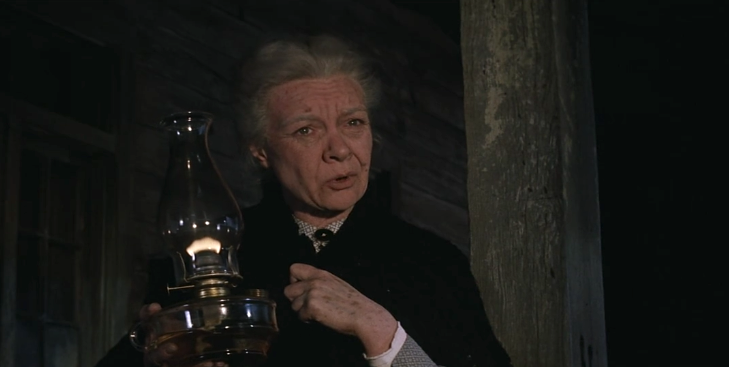
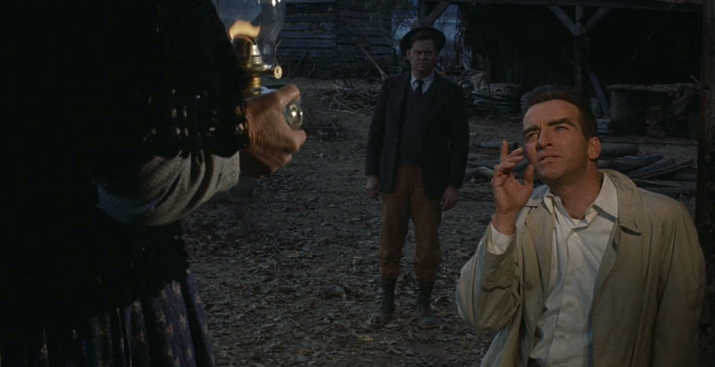
Ma Garth: [referring to Chuck] Walter, you'd better take this lunatic home!
Chuck: [missing the insult, drunk] I'll take him home in a minute. But there's something I want to say first.
Jo Van Fleet steals every scene she's in except one, when Chuck visits her while shit-faced. Clift is loose and funny in the scene and walks away with it. That unexpected sense of humor and flummoxed quality with both Garth women pays off in his scenes with Remick, too.
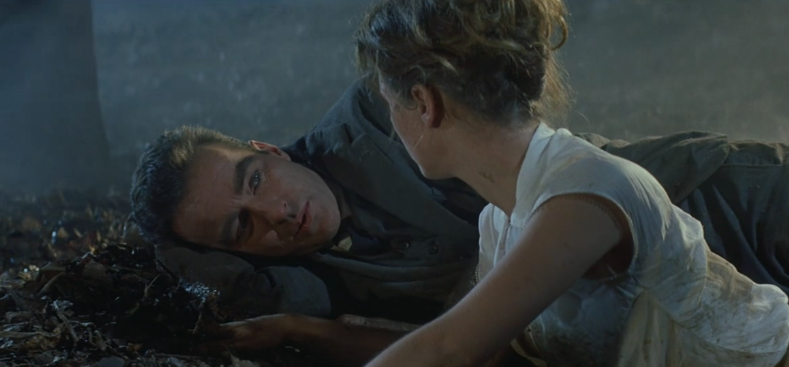
I wish someday I could win maybe one fight.
Curiously despite its then-very-popular director, Elia Kazan and the fact that it's in the National Film Registry as being "culturally, historically, or aesthetically significant," Wild River is all but forgotten today even though it's easily one of the best films in the back half of Clift's filmography. It received zero Oscar nominations despite three strong performances, a good script, and evocative cinematography and production design.
Wild River also holds the distinction of being one of Montgomery Clift's only color films (the others are Raintree County and his final film The Defector which we'll get to in a few days)
Color pictures began in the 1930s but somehow Clift made it all the way to 1957 without appearing in one. Maybe the visual shift interrupts direct comparisons to the jaw-dropping black and white beauty of his youth, but Clift suddenly looks like a bonafide movie star again. Or maybe the famously troubled actor was having a good few months? Or maybe he was learning to work around his new limitations as an actor due to nerve damage in his face? Whatever the cause this classic star is handsome and vital onscreen again, and looser physically too. He no longer recedes in the face of showy co-stars as he'd done in his early post-accident pictures but carries a movie with ease. Happily, it's a good one, too.
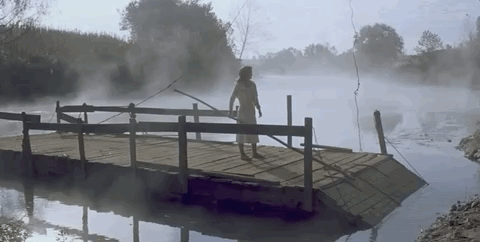
Next: The Misfits (1961) starring Marilyn Monroe, Clark Gable, Thelma Ritter, and Clift